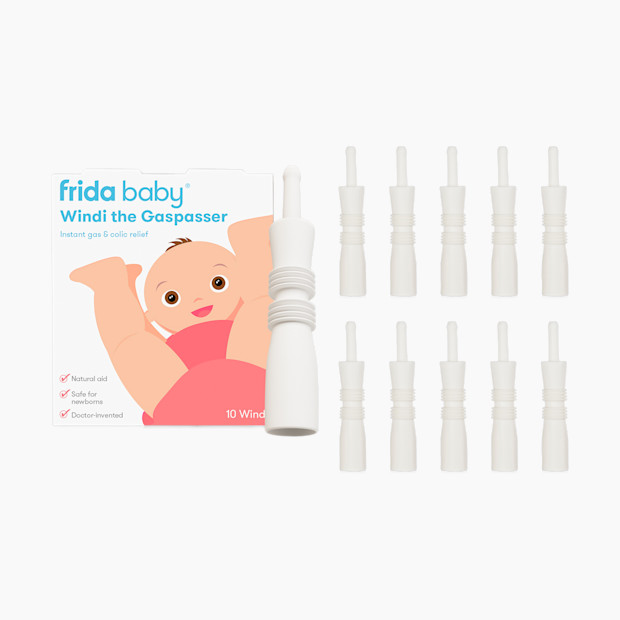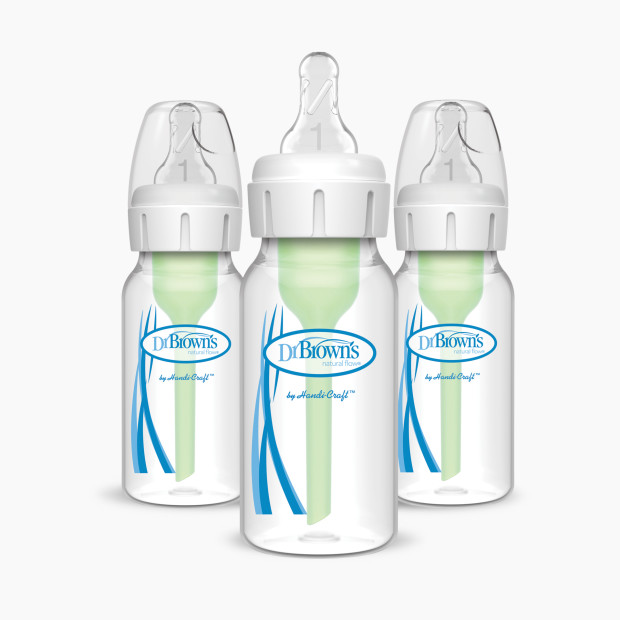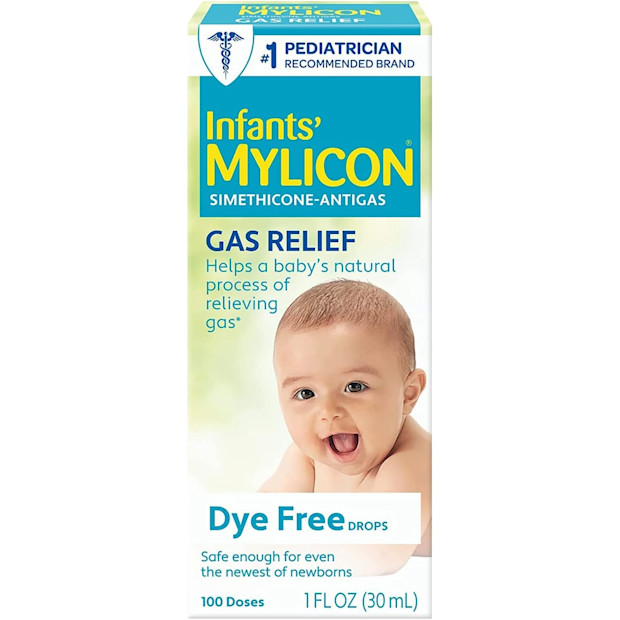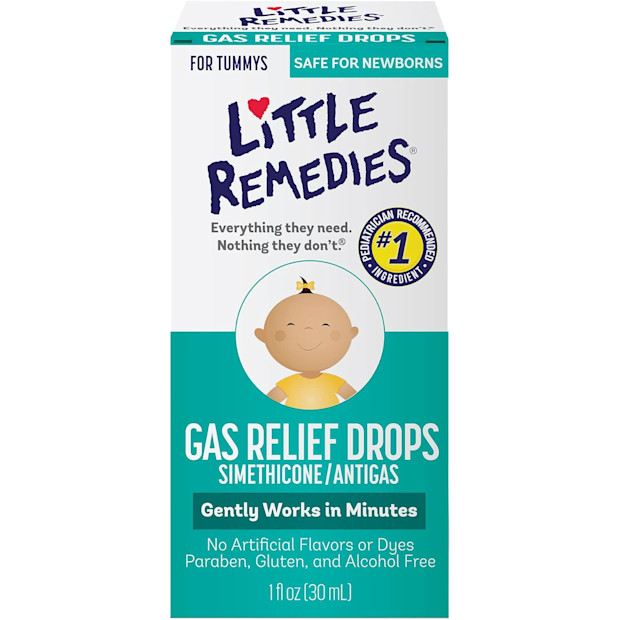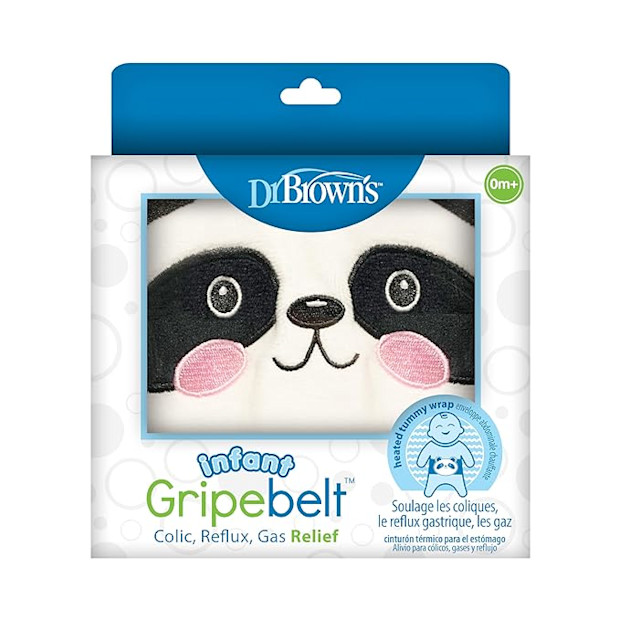
The Signs and Causes of Colic in Babies, According to an ER Doctor
If your baby keeps crying and can't be consoled, it may be colic. Here's what to know and what you can do to help.

In This Article
If you are a parent of one of the up to 20 percent of infants who suffer from colic, our hearts are with you. Colic is one of the most distressing problems of infancy—for all involved (including us physicians).
The exact cause of colic and how to treat it are still largely unknown, but luckily, symptoms usually resolve on their own by the time babies are four months old. While it's comforting to know that there is an end in sight to the crying, there are actions you can take (and even some anti-colic products) to lower the stress until then.
In this article:
What is colic?
Colic is formally defined as an otherwise healthy infant who cries for more than three hours per day, more than three times per week, for more than three weeks duration. In general terms, colic is defined as excessive crying for no apparent reason.
Colic usually begins when babies are about two weeks old, peaks at six weeks, and then often resolves between 12-16 weeks of age. Crying is normal for all babies, and the average baby cries for about two hours per day. Those who have colic, however, cry excessively, are much more difficult to console and have disrupted sleep patterns.
What causes colic?
The exact cause of colic is unknown, but the vast majority of cases are thought to be due to non-functional factors. Possible explanations for constant crying include a newborn’s unusual sensitivity to stimulation, resulting from an immature and actively developing nervous system. As an infant grows, the nervous system matures, and a baby’s ability to “self-console” improves.
Fewer than five percent of all colic cases are due to actual functional causes, like lactose intolerance or sensitivity to foods in the mother’s diet in breastfed babies. Rarely, colic can be due to a sensitivity in milk protein in formula-fed babies.
Colic can also stem from increased gas or swallowed air, due to overfeeding, infrequent burping, inadequate latch or seal when feeding or, if breastfeeding, an overabundant breast milk supply or forceful milk letdown.
Other gastrointestinal causes include constipation or reflux.
As emergency physicians, we also check for hair tourniquets (when hair becomes tightly wound around a body part), painful corneal scratches or occult fractures (fractures you can't see on an X-ray).
In rare instances, colic can also signal an underlying medical problem, such as a hernia, infection or even an early form of childhood migraine. Colic can also be reflective of a family’s stress or anxiety.
Nevertheless, colic is equally common in both breastfed and bottle-fed babies, males and females and premature and full-term infants, and regardless of birth order.
What are the symptoms and signs of colic?
Colicky babies tend to cry inconsolably, often screaming, with episodes that have a clear beginning and end. This occurs irrespective of prior activity, whether an infant was feeding, sleeping or even previously happy. Crying spells can occur at any time, although they are perceived worse in the early evening hours.
During crying events, babies may exhibit physical signs of increased muscle tone, which include a red face, tense belly, legs drawn into belly, an arched back, stiff arms or fingers clenched shut.
What is the treatment for colic?
Colic itself isn't harmful to infants and doesn't have any known lasting complications. But it is stressful, to say the least.
What may help one infant may not help another. Try the following techniques, and revisit ones that seem to help, even if only a little.
If your baby is breastfed, try spacing out feedings so your baby gets more hindmilk. Hindmilk is richer than foremilk and is often more soothing. Also try feeding on one breast at a time, rather than alternating during a feed, which also ensures more hindmilk.
If the breastfeeding parent has an overactive letdown while breastfeeding, try and manually express this initial milk letdown, or pump this milk out first. This can help decrease the air trapped when your baby is trying to gulp too quickly to keep up.
If breastfeeding, keep a dietary log and try to see if there is any pattern between certain foods and colic episodes. This is a long shot, but if there is a potential culprit food group identified, eliminate one at a time. Possible triggers include stimulants such as caffeine and chocolate, as well as dairy products and nuts.
If your baby is formula-fed, talk with your doctor about possibly switching to a different protein formula.
Regardless if formula-fed or breastfed, decrease the amount of air swallowed (and subsequent gas buildup) by ensuring a good latch and keeping your baby upright during feedings. Frequent burping in between and after feeds also can help.
Swaddle, hold, gently rock and sing to your baby.
Place a warm towel on your baby’s stomach.
Practice supervised tummy time, or lay your baby on their back and bicycle their legs.
Try a pacifier.
Take your baby outside or on a walk.
Consult your doctor and ensure that your baby’s colic is not due to an underlying functional cause.
When should you call a doctor about colic in babies?
Call your doctor immediately if excessive crying is associated with:
Poor weight gain
Associated rashes, such as hives
Vomiting
Diarrhea
Blood in stool
Constipation
Fever
Lethargy or decreased responsiveness
Trauma or recent fall
Keep in mind: Parents of colicky babies are at much higher risk of postpartum depression. They are also more likely to stop breastfeeding prematurely (even though breastfed babies have the same risk of colic as formula-fed infants). It's important to get support and take care of yourself so that you can parent your baby. Ask for help and contact your doctor immediately if you feel overwhelmed, or like you might shake or harm your baby.
If you're in the thick of this colicky stage, it can be hard to remember that this is most likely temporary. But eventually, your baby will be able to learn and better communicate their discomforts to you, which will open up a whole new world.
